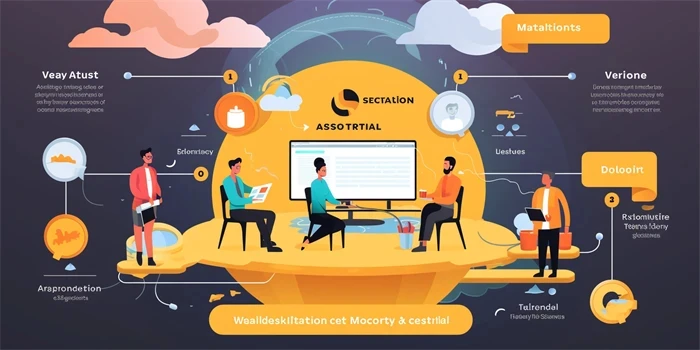Artificial Intelligence (AI) is revolutionizing the way businesses operate across various industries. By leveraging advanced technologies and algorithms, AI has the potential to transform business processes, enhance decision-making, and drive innovation. In this article, we will explore the numerous ways in which AI can positively impact your business.

Enhanced Customer Experience
One of the significant advantages of implementing AI in your business is the ability to provide a personalized and enhanced customer experience. By analyzing customer data, AI algorithms can understand individual preferences, behaviors, and needs, enabling businesses to tailor their offerings accordingly. Chatbots powered by AI can handle customer queries in real-time, providing instant support and improving overall customer satisfaction.
Moreover, AI-powered recommendation systems can suggest products or services based on customers’ browsing and purchase history, increasing cross-selling and upselling opportunities. This level of personalization not only drives customer loyalty but also boosts sales and revenue.
Efficient Data Analysis and Insights
A key area where AI excels is in data analysis. AI algorithms can efficiently process vast amounts of data in real-time, providing valuable insights and actionable intelligence for businesses. Through machine learning algorithms, AI can identify patterns, trends, and correlations within data sets, enabling organizations to make informed decisions and drive strategic initiatives.
AI-powered data analytics tools can also automate repetitive tasks, such as data cleaning and preparation, reducing human error and saving valuable time. These tools can generate comprehensive reports, visualizations, and predictive models, allowing businesses to gain a deeper understanding of their operations and optimize processes for better efficiency.
Improved Efficiency in Operations
Integrating AI into various operational processes can significantly enhance efficiency and productivity. For instance, in manufacturing, AI-powered robots and automation systems can perform repetitive tasks with precision and speed, reducing the need for manual labor and minimizing errors.
In the logistics industry, AI algorithms can optimize supply chain management, predicting demand, optimizing routes, and minimizing transportation costs. Implementing AI in these areas not only improves overall efficiency but also leads to cost savings and competitive advantages.
Enhanced Cybersecurity
As businesses become more reliant on technology, the risk of cyber threats and data breaches increases. AI plays a crucial role in enhancing cybersecurity measures. AI algorithms can continuously monitor network traffic, detect anomalies, and identify potential security breaches in real-time.
Moreover, AI-powered security systems can adapt and learn from new threats, constantly updating their defense mechanisms to stay ahead of cybercriminals. By leveraging AI, businesses can ensure the safety and integrity of their data, protecting their operations and reputation.
Streamlined Recruitment Process
A major challenge for businesses is finding and hiring the right talent. AI can streamline the recruitment process by leveraging natural language processing and machine learning algorithms to analyze resumes, conduct initial screenings, and identify the best-fit candidates for specific roles.
AI-powered recruitment tools can also analyze candidates’ online presence, assessing their skills, expertise, and cultural fit. This not only saves time for hiring managers but also improves the accuracy of candidate selection, leading to better long-term employee performance and reduced turnover.
Increased Automation and Productivity
Automation is a key driver of productivity. By integrating AI into various aspects of operations, businesses can automate mundane and repetitive tasks, freeing up employees’ time for more strategic and creative work.
AI-powered workflow automation systems can analyze processes, identify bottlenecks, and suggest optimizations. This results in improved efficiency, reduced operational costs, and increased productivity across the organization.
Frequently Asked Questions
Q: Will AI replace human workers?
A: While AI may automate certain tasks, it is unlikely to completely replace human workers. Instead, AI can augment human capabilities and allow employees to focus on more complex and value-added tasks.
Q: Is AI only beneficial for large businesses?
A: No, AI can benefit businesses of all sizes. There are AI solutions available for various budgets and needs, allowing small and medium-sized enterprises to leverage AI technologies to enhance their operations.
Q: Can AI be integrated with existing business systems?
A: Yes, AI can be integrated with existing business systems. Many AI solutions offer APIs and integrations that allow seamless integration with other software and tools used by businesses.
References:
1. Smith, J. (2020). The 6 Biggest Ways Artificial Intelligence will Transform Business by 2025, Forbes.
2. Wang, J. (2021). How AI is Transforming the Business World, Entrepreneur.
3. Garner, P. (2019). The Essential Role of Artificial Intelligence in Business, Harvard Business Review.


